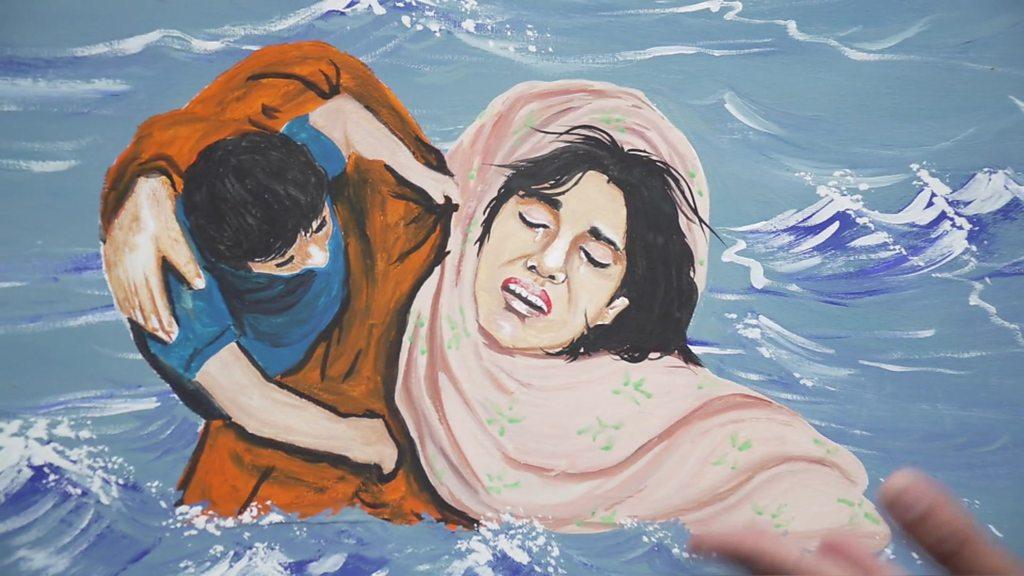Greek plan to stop migrant boats with floating barriers
- Published
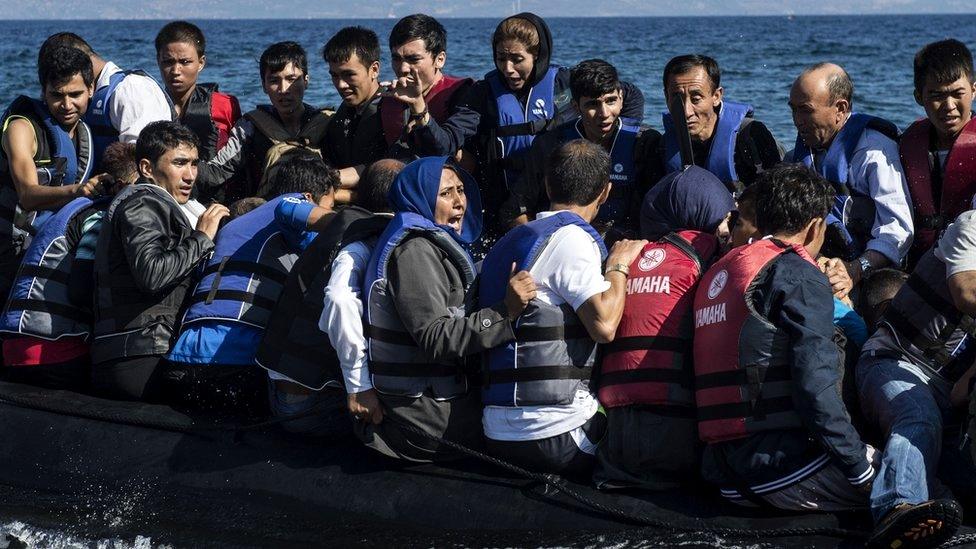
Thousands of migrants have sought refuge on the Greek island of Lesbos
Greece is planning to install a floating barrier in the Aegean Sea to help stop migrant boats reaching its islands from Turkey, officials say.
The barrier, possibly made of netting and equipped with flashing lights, will cover 1.7 miles (2.7km) and rise above water near the Greek island of Lesbos.
Greece's defence ministry said the project would be an emergency measure.
Migrants trying to reach Europe often travel through Turkey to Greece. Arrivals have proved hard to manage.
Many are fleeing violence and persecution in their countries. The majority of arrivals are from Afghanistan and Syria, according to the United Nations.
Last week, strikes and protests took place on the Greek islands of Lesbos, Samos and Chios over the government's handling of migrant arrivals.
This latest initiative is "aimed at containing the increasing inflows of migrants" on islands such as Lesbos, the defence ministry said.
It said the netted barrier needed to be 1.1 metres tall, with about 50cm (20in) rising above the sea's surface. It would be located north of Lesbos and should include lights and reflectors to make it visible at night.
The ministry said the budget for the project was €500,000 ($550,000; £424,000), and this would include at least four years of maintenance costs.
The government has called on vendors to submit designs for the installation.
"The invitation for floating barriers is [a move] in the right direction," Greece's Defence Minister Nikos Panagiotopoulos told radio station Skai, adding: "We will see what... its effect as a deterrent will be in practice."
Barriers that rise above sea level will make it hard for small boats to pass, and nets could be problematic for propeller-driven vessels.
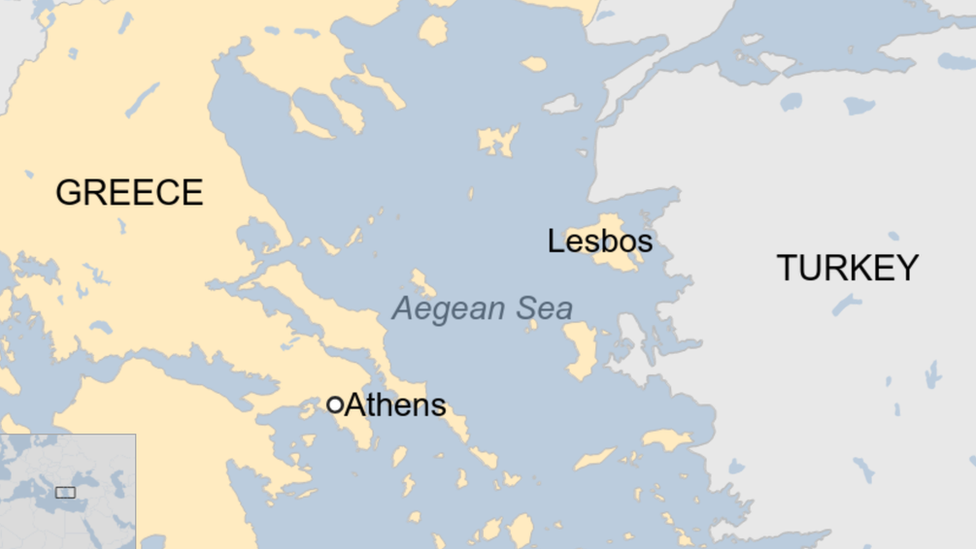

Amnesty International described the announcement as "alarming" and said the move raised "serious issues" about Greece's plans for dealing with those "desperately seeking safety".
"The government must urgently clarify the operational details and necessary safeguards to ensure that this system does not cost further lives," Amnesty's research director for Europe, Massimo Moratti, said.
The Greek migration ministry also said on Thursday that it was introducing additional shifts for staff to process a build-up of more than 100,000 asylum applications.
Migrant arrivals have been rising in Greece, and camps on several of its islands are overcrowded.
At Moria, the largest camp on the island of Lesbos, there are more than 19,000 asylum seekers living at a facility with capacity for 2,840.


Greece's Ministry for Citizen Protection says there are currently around 7,200 migrants living in the camp on Samos, which was designed for just 700.
The local population of Samos town is around 6,500.
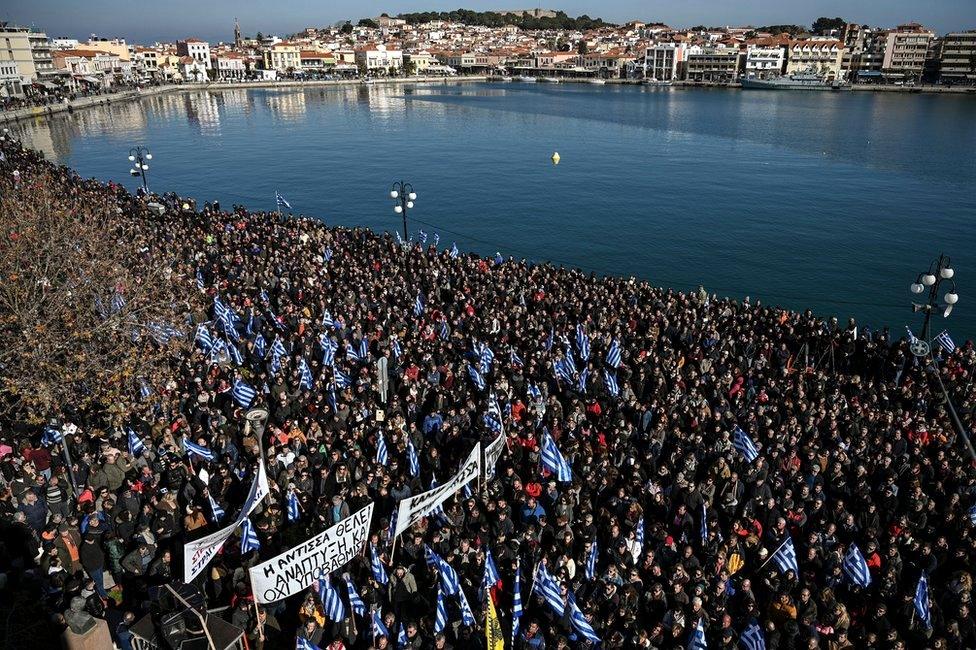
Demonstrators on the Greek island of Lesbos take part in a protest against migrant camps
Conditions on the islands have led to tension between migrants and locals. Last week, thousands of Greek protesters demonstrated on Lesbos, Samos and Chios over the government's handling of migrants arriving from Turkey.
Banners on the Lesbos municipal theatre proclaimed: "We want our islands back."
Another read: "No more prisons for human souls in the North Aegean."

You might also be interested in:
An increasing number of children are self-harming and attempting suicide in a Greek migrant camp
- Published22 January 2020
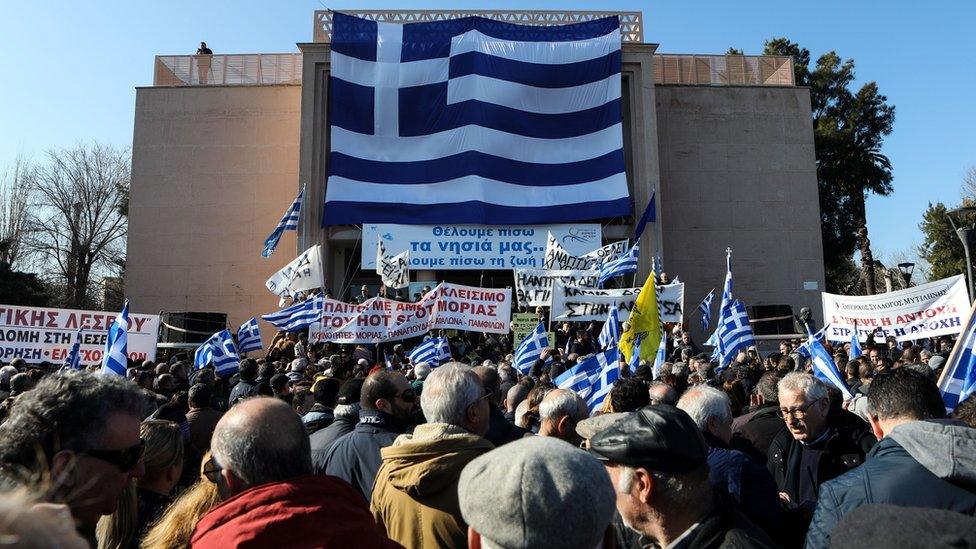
- Published20 November 2019
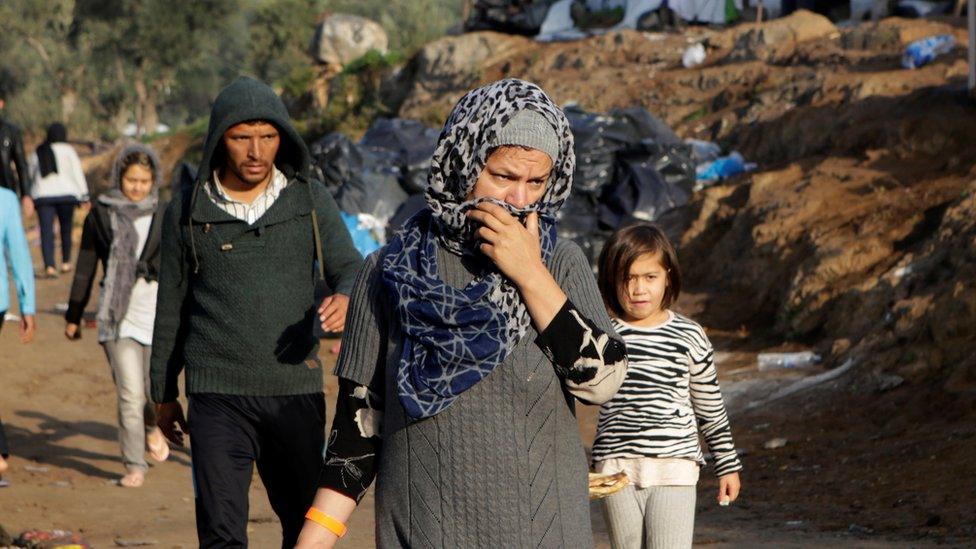
- Published17 December 2019
